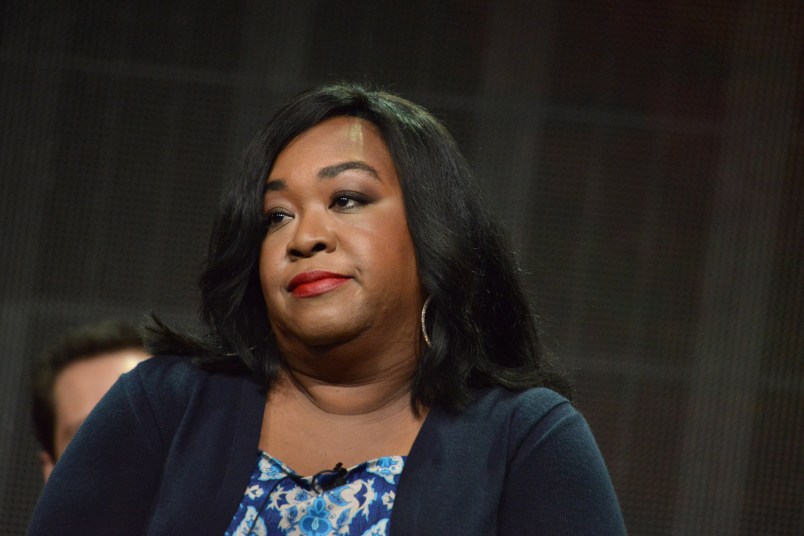After a blockbuster debut, the Shonda Rhimes-produced “How to Get Away With Murder” is off to an impressive start. But has its creator, Peter Nowalk, gotten lost in the shuffle?
In its first three weeks, ABC freshman drama “How to Get Away With Murder” has lived up to the expectations that its Thursday night predecessors have set. Like Grey’s Anatomy and “Scandal” before it, it is tightly written, driven by intriguing and complex characters, and leaves viewers wanting more at the end of what we’re positive can’t have been a full hour. And like the programs before it, “How to Get Away With Murder” is earning heaps of praise for Shonda Rhimes. So what’s the problem? It’s not her show.
Rhimes does serve as an executive producer, and is closely involved with its development, but the creator and chief executive producer of HTGAWM is Peter Nowalk, a protege of Rhimes’. After cutting his teeth writing for several prior Rhimes efforts (Grey’s Anatomy, Private Practice, and Scandal, including season 3’s memorable “Everything’s Coming Up Mellie”), Nowalk cast out on his own to create and write Murder. Yet, as praise is doled out for this engaging show, Nowalk’s name is consistently absent. So how does recognition for a creator get lost as comprehensively as Nowalk’s has? And who’s to blame when this happens?
It’s worth noting, the fault likely doesn’t fall at the feet of Shonda Rhimes herself. When interviewed alongside Peter Nowalk, she is quick to deflect praise of the show to its true creator, correcting those who imply that the direction or makeup of the program has anything to do with her. Further, when Nowalk does speak about the show, he credits his former boss with empowering him to make the show his own.
A viable theory: it is entirely possible that Nowalk simply doesn’t have, and doesn’t wish to acquire the constitution for the spotlight, and intentionally focuses on the work rather than the credit. Writer David Zweig recently published Invisibles: The Power of Anonymous Work in an Age of Relentless Self-Promotion about just this sort of individual. Zweig says of ‘invisibles’:
Great heights of fulfillment and success can be achieved by focusing on the value of your work, not the amount of attention you receive for it. And often the best way to advocate for oneself isn’t to spend time on self-promotion, but to simply “do the work,” as [background singer Merry] Clayton puts it.
But there is another interesting, previously unmentioned dynamic at play here. This case of mistaken credit (Nowalk v. Rhimes) is a rare one, one in which the powerful female (a moniker Rhimes actively avoids) is getting credit where the male is not; further, it also happens to be one in which the black female is getting credit for the white male’s work. Too often, the narrative is reversed — think the recent controversy over Tinder’s founding — but in this instance, we could be seeing a power dynamic so unique, no one sees it fit to correct.
It would appear, then, that the show will have to distinguish itself from the rest of the Shondaland canon through the work that Nowalk does. For him to get out of his mentor’s shadow, his work will have to look markedly different from hers. There seems to be some promise in this department — Murder trades in a jagged timeline style quite unlike that of Grey’s or Scandal, and features a gay main character unlike any to previously appear on Rhimes’ shows. But ultimately, the test for Nowalk to stand apart from his uniquely powerful female mentor will be to create something that makes viewers sit up and say, “Who did that?” From the look of the show’s first few weeks, a shocker like that can’t be too far away.
Amma Marfo is a writer, higher education administrator, and popular culture enthusiast dedicated to the idea that our leisure pursuits can inform and enrich the work we do. She writes often for her own blog (“The Dedicated Amateur“) and is a contributing editor to the Niche Movement. Her first book, THE I’S HAVE IT: Reflections on Introversion in Student Affairs, was released in January 2014. Her other interests include running, yoga, surfing, trivia, comedy, and gluten-free cooking/baking. You can follow her on Twitter @ammamarfo.







It may be a cliche, but there’s a reason for it: It’s amazing how much you can accomplish when you let someone else take the credit.
In this case it’s more passive–avoiding the limelight–but that way you also avoid the knives.